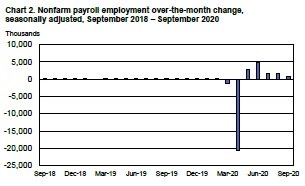"To found a great empire for the sole purpose of raising up a people of customers, may at first sight, appear a project fit only for a nation of shopkeepers. It is, however, a project altogether unfit for a nation of shopkeepers, but extremely fit for a nation whose government is influenced by shopkeepers."
Adam Smith
Another complex support package was unveiled last week by Chancellor Rishi Sunak to help us through the difficult winter ahead. HM Treasury is certainly proving its creativity at present, following on from the furlough scheme which runs its course until the end of October.
However, there is one key thing which makes all this possible: as Professor Joseph Stiglitz, the world-renowned economics professor from New York, said last week on BBC’s Question Time. It’s the way the United Kingdom Government has, for many decades, used employers as its agents for distribution and collection of statutory payments.
So, in this commentary we consider the unpaid service that employers provide to the state, and the flexibility that they have to demonstrate as we battle our way through the virus emergency.
 In his remarks on Question Time, Professor Stiglitz pointed to the contrast between the United Kingdom and the United States, where mass unemployment has resulted from employers being forced to break the link with their people.
In his remarks on Question Time, Professor Stiglitz pointed to the contrast between the United Kingdom and the United States, where mass unemployment has resulted from employers being forced to break the link with their people.
We drew attention to this risk in our commentary on 2 March, pointing out that there are no statutory sick pay arrangements in the US.
As a result, unemployment has soared in the United States: another reason why Donald Trump may struggle to secure re-election.
But it’s not just emergency Covid-19 support and statutory sick pay which is handled by employers. It’s also student loan repayments, recovery of council tax arrears and the provision of various benefits, not to mention auto-enrolment for pensions.
If all of these provisions had to be channelled to and from citizens directly by the state, there would be a huge administration cost borne by the taxpayer, and the courts would be even more clogged than they are at present.
UK employers give a wonderful service to the country, with HR departments and payroll services quietly humming away as they make their monthly returns to HM Revenue and Customs.
This will place the United Kingdom in a much stronger position to recover when the Covid-19 crisis is finally lifted, since the continuity of employment and the skills necessary to power businesses will be largely intact.
But, of course, employment support is only one aspect that business has to contend with as we navigate our way through the virus emergency. The rapidly changing nature of trading restrictions from region to region also places a real burden on directors and management, who have not only to cope with financing challenges but also to comply with fluctuating rules on distribution.
Spare a thought for those supermarkets in Wales, which have been required to tape off sections of their stores because the First Minister decided to impose his principles for moral shopping on top of an already complex lockdown process.
Spare a thought for the sponsors, sports organisers and broadcasters whose rugby fixtures have been thrown into chaos as a result of players breaking the rules with an evening out. The Rugby Football Union could incur costs of up to £1 million as a result.
But it is the nature of business to absorb and adapt to the chopping and changing of everyday life - and, in general, they do a good job of it.
Yet again it demonstrates why free enterprise helps us to stay on a level keel, and it doesn’t finish with Covid-19. In just under three months, business will have to cope with whatever Brexit throws at us: as we predicted on 14 September, negotiations are going down to the wire. However, I remain optimistic that a formula will be agreed, avoiding the imposition of World Trade Organisation tariffs. At this late stage, however, it’s difficult to see how those queues of 7,000 lorries can be avoided in Kent during January.
Just as with Rishi Sunak’s new employment measures, business will cope with what is thrown at it - that’s its job, to keep the wheels turning.
There are benefits of being a nation of shopkeepers.
Gavin Oldham OBE
Share Radio

